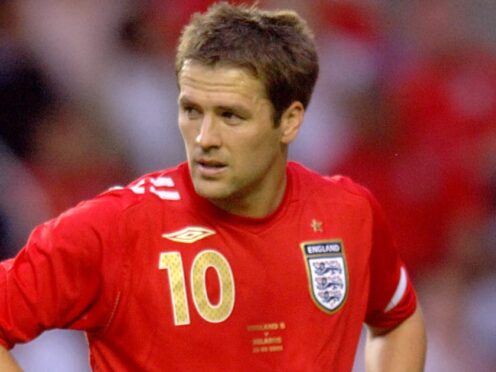
Former England striker Michael Owen announced he would retire at the end of the season on this day in 2013.
Owen, then 33, had signed a one-year contract with Stoke after leaving Manchester United the previous summer but his time in the Potteries was hampered by a hamstring injury, contributing to his decision to call it a day.
Owen scored 40 goals in 89 England appearances – making him the fourth highest scorer for his country’s men’s team at the time – and played at the top level for Liverpool, Real Madrid, Newcastle and Manchester United.
“It is with an immense amount of pride that I am announcing my intention to retire,” Owen said on March 19, 2013.

“I have been very fortunate in that my career has taken me on a journey I could only have dreamed of.
“I now feel it is the right time to bring the curtain down on my career.”
Owen burst on to the scene as a teenager at Liverpool and made England’s 1998 World Cup squad aged only 18.
His memorable solo goal against Argentina in that tournament made him a world superstar.
Owen scored 220 goals in club football, winning the Premier League, FA Cup and UEFA Cup, as well as being a three-time League Cup winner.

The peak of his club career came at Liverpool where he scored 158 goals in 297 appearances, including a late double in the Reds’ 2-1 FA Cup final victory over Arsenal in 2001 – , before moving to Real Madrid in 2004.
Owen returned to the Premier League with Newcastle in August 2005 and, after four injury-blighted years on Tyneside, moved to Manchester United on a free transfer and won his sole Premier League title at Old Trafford in 2011.
He won the Ballon d’Or in 2001 – the first English player to collect the accolade since Kevin Keegan in 1979.

Enjoy the convenience of having The Sunday Post delivered as a digital ePaper straight to your smartphone, tablet or computer.
Subscribe for only £5.49 a month and enjoy all the benefits of the printed paper as a digital replica.
Subscribe